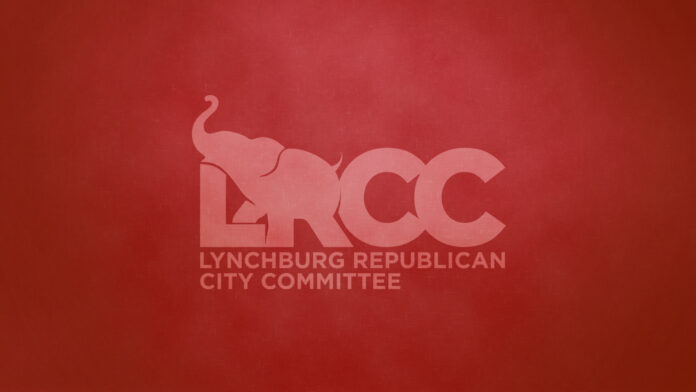Today, the Lynchburg Republican City Committee (“LRCC”), and its chairwoman Veronica Bratton, filed a federal civil rights lawsuit against the Virginia Department of Elections, the State Board of Elections and Susan Beals, the Commissioner of the Department of Elections, in her official capacity, challenging Virginia’s new “Convention Ban Law” as an unconstitutional violation of the rights of political parties to free association.
The lawsuit challenges the portion of Code of Virginia § 24.2-509(A) that was enacted by the General Assembly in 2021, and took effect January 1, 2024. The law prohibits political parties from selecting any method of nominating candidates for public office that “ha[s] the practical effect of excluding participation in the nominating process by qualified voters who are otherwise eligible to participate in the nominating process under that political party’s rules but are unable to attend meetings.”
The practical effect of the Convention Ban Law is to ban all party-run nomination processes such as conventions, caucuses or party canvasses, which have been utilized for more than a century by political parties in Virginia, other states and nationally, to select candidates for office. In effect, political parties are now required to utilize the state-run “open primary” process, in which voters of all parties can participate in selecting the nominees not just of their own party, but of opposing parties as well. Virginia does not register voters by political party, so there is no way to keep Democrats and Republicans from crashing each other’s nomination primaries.
The lawsuit, filed in U.S. District Court for the Western District of Virginia in Lynchburg, challenges violations of the LRCC’s freedoms of speech and association, under the First Amendment to the United States Constitution, and Article I, Section 12 of the Virginia Constitution. Rick Boyer of Integrity Law Firm is representing the LRCC in the litigation.
The LRCC’s complaint notes the recent news that Peter Alexander has announced an exploratory committee to challenge Republican City Councilwoman Stephanie Reed in the Republican primary in 2026. Under the Party Plan of the Republican Party of Virginia, the state party’s governing document, when an individual signs their Statement of Intent to support all Republican candidates in the ensuing general election, then makes a public statement in support of a candidate running against a Republican in that election, he or she is ineligible to participate in Republican nomination contests for four years. In 2024, Mr. Alexander signed that Statement of Intent at the LRCC’s 2024 mass meeting. After losing the June primary election for the Republican nomination for City Council to incumbent Chris Faraldi, Alexander then ran as a write-in candidate against the Republican nominee.
Bratton stated, “The Party Plan makes our membership rules clear, that anyone who signs the Statement of Intent, then publicly backs an opponent to a Republican nominee, is not eligible to participate in Republican nomination contests or be a member of the Party for four years. Until 2024, the LRCC could choose a party-run process such as a party canvass or a convention to choose its nominee. This allowed us to keep opponents of our party from participating in helping choose our candidate, or even being that candidate. With the Convention Ban Law taking effect, the state of Virginia requires the Lynchburg Republican Party to allow Democrats, or even people who ran against our nominees, to choose our nominees, or even be our nominees. The Convention Ban Law is a direct affront to our freedom of association as a party.”
Boyer stated, “Both the First Amendment to the U.S. Constitution and Article I, Section 12 of the Virginia Constitution protect the rights of political parties to determine the message they wish to convey, and to choose the candidates they prefer to carry that message. By removing the rights of political parties to have party-run nomination processes, under an open primary law, the state forces Republicans to allow Democrats to help choose their nominees, and vice versa. Both the U.S. and Virginia Constitutions prohibit the government from shutting down the party’s preferred speech, and from forcing it to allow its political opponents to help choose its candidates, watering down its message and weakening its chances for victory at the polls.”
Bratton continued, “The LRCC voted overwhelmingly to challenge the Convention Ban Law, to stand up for the constitutional rights of all political parties, and to fight for the grassroots of our party against the big-money Richmond interests that try to ram open primaries down the throats of the people.”
Boyer added, “We are confident that the Convention Ban Law law is unconstitutional, and look forward to seeing it overturned, taking power away from Richmond and returning it to local Republican activists at the grassroots level.”
The lawsuit asks for temporary and permanent injunctive relief, declaring the Convention Ban Law unconstitutional and allowing the LRCC to choose traditional party-run nomination processes again starting with the 2026 election cycle, as all Virginia nominations have already been set as primaries under the Convention Ban Law for 2025.
The LRCC has opened a legal defense fund to raise support for legal fees and costs in the lawsuit.
Inquiries about the case may be directed to Rick Boyer via the contact information in the header. He is available for interviews regarding the suit.
NEWSLETTER SIGNUP
Subscribe to our newsletter! Get updates on all the latest news in Virginia.


